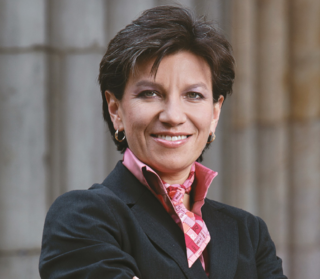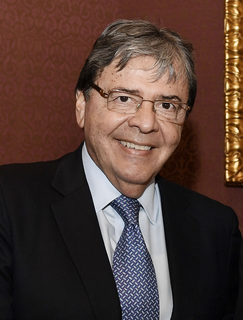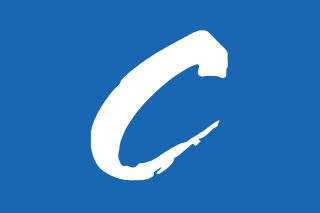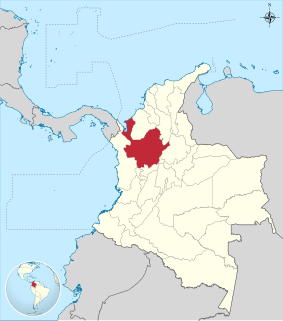The history of Colombia includes the settlements and society by indigenous peoples, most notably, the Muisca Confederation, Quimbaya Civilization, and Tairona Chiefdoms; the Spanish arrived in 1499 and initiated a period of conquest and colonization, most noteworthy being Spanish conquest of the Muisca; ultimately creating the Viceroyalty of New Granada, with its capital at Bogotá. Independence from Spain was won in 1819, but by 1830 the "Gran Colombia" Federation was dissolved. What is now Colombia and Panama emerged as the Republic of New Granada. The new nation experimented with federalism as the Granadine Confederation (1858), and then the United States of Colombia (1863), before the Republic of Colombia was finally declared in 1886. Panama seceded in 1903. Since the 1960s, the country has suffered from an asymmetric low-intensity armed conflict, which escalated in the 1990s, but then decreased from 2005 onward. The legacy of Colombia's history has resulted in one of the most ethnically and linguistically diverse countries in the world giving rise to a rich cultural heritage; while varied geography, and the imposing landscape of the country has resulted in the development of very strong regional identities.

Andrés Pastrana Arango was the 30th President of Colombia from 1998 to 2002, following in the footsteps of his father, Misael Pastrana Borrero, who was president from 1970 to 1974. As of 2017, he is the last president to come from the Conservative Party.

Radical Change is a political party in Colombia.

Presidential elections were held in Colombia on 28 May 2006. Álvaro Uribe was re-elected as President of the Republic and will serve another four-year term, starting on 7 August 2006. Uribe obtained 62.20% of the votes, thus surpassing the 50% needed to avoid a runoff against the second place candidate.
Alfonso López Caballero is a Colombian economist and diplomat, the son and grandson of former Presidents of Colombia, Alfonso López Michelsen and Alfonso López Pumarejo respectively, and former congressman, government minister, ambassador to France, Canada, the United Kingdom, and presidential candidate.
The Great Alliance for Change was a political alliance between parties in Colombia during the Colombian presidential election, 1998 that supported the presidency of Andres Pastrana Arango against the campaign of Colombian Liberal Party presidential candidacy of Horacio Serpa, back then supported by the Presidency of Ernesto Samper.

Martha Lucía Ramírez Blanco is a Colombian lawyer, politician, and the current Vice President of Colombia.
La Silla Vacía is a Colombian news website founded by journalist and writer Juanita León in 2009. The site focuses primarily on Colombian politics.

Presidential elections were held in Colombia on May 25, 2014. Since no candidate received 50% of the vote in the first round, a run-off between the two candidates with the most votes took place three weeks later on June 15, 2014. According to the official figures released by the National Registry office, as of May 22, 2014 32,975,158 Colombians were registered and entitled to vote in the 2014 presidential election, including 545,976 Colombians resident abroad. Incumbent president Juan Manuel Santos was allowed to run for a second consecutive term. In the first round, Santos and Óscar Iván Zuluaga of the Democratic Center were the two highest-polling candidates and were the contestants in the June 15 run-off. In the second round, Santos was re-elected president, gaining 50.95% of the vote compared with 45.00% for Zuluaga.

Federico Gutiérrez Zuluaga is a Colombian politician and the current mayor of Medellín since January 2016.
Media ownership in Colombia is highly concentrated. The four largest newspapers together account for two-thirds of total readership, and the two largest television channels have about two-thirds of the market and 78% of advertising revenues, according to a 2016 study by Reporters Without Borders and the Colombian Federation of Journalists.

Claudia Nayibe López Hernández is a Colombian politician. She was a Senator of the Republic of Colombia and was the vice-presidential candidate in the 2018 presidential election for the Green Alliance party.

Carlos Holmes Trujillo García is a Colombian dynasty politician, diplomat, scholar and attorney, and his country's current foreign minister. Previously in his career he was mayor of Cali, Colombia's ambassador to the Organization of American States (OAS) and numerous countries.


















